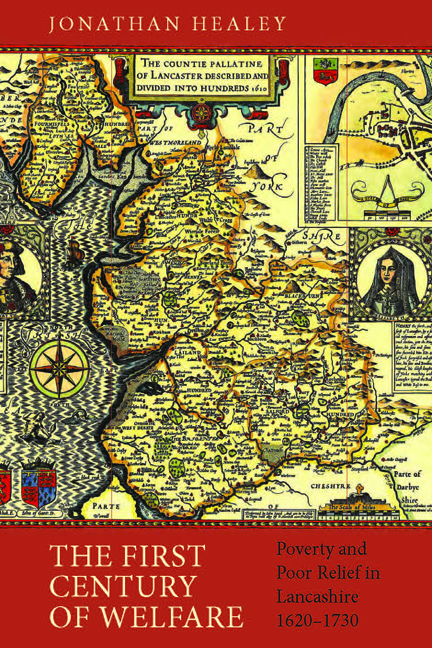Conclusion: Worldly Crosses
Published online by Cambridge University Press: 05 November 2014
Summary
We all, alas, are subject to misfortune.
Daniel Defoe (1729)In 1661, a group of petitioners from Failsworth appealed to Manchester Sessions for the relief of one of their neighbours, Elizabeth Chatterton. It had, they claimed, ‘pleased almighty god for reasons best known to himselfe’ to lay a ‘heavy affliction’ on her, which we learn from a previous petition was lameness. It was the uncertainty of life that this statement represents, in which the visiting of personal misfortune was the unpredictable prerogative of Almighty God, which formed the key to ‘deserving’ poverty under the Old Poor Law. The year, too, is significant, for it was one of high prices. As was Elizabeth's widowhood: her capacity to engage in production was hampered, her costs of living raised, and her protection from a patriarchal labour market was lost. She was, in other words, unfortunate.
Many petitioners, indeed, wrote specifically of misfortune and providence. In a tiny petition, not more than five inches by three, and in a quivering hand, Silvester Laithwaite of Ormskirk had told justices in 1638 that he ‘by misfortunat occasions is brought poore & lowe of meanes’. Lawrence Charnley of Haighton, meanwhile, told JPs in 1686 that he had formerly been ‘a man of an estaite’, but ‘through debts and severall of the inconveniences which haith light upon him through the providence of almighty God’ he had been forced to sell it.
- Type
- Chapter
- Information
- The First Century of WelfarePoverty and Poor Relief in Lancashire, 1620–1730, pp. 255 - 257Publisher: Boydell & BrewerPrint publication year: 2014



